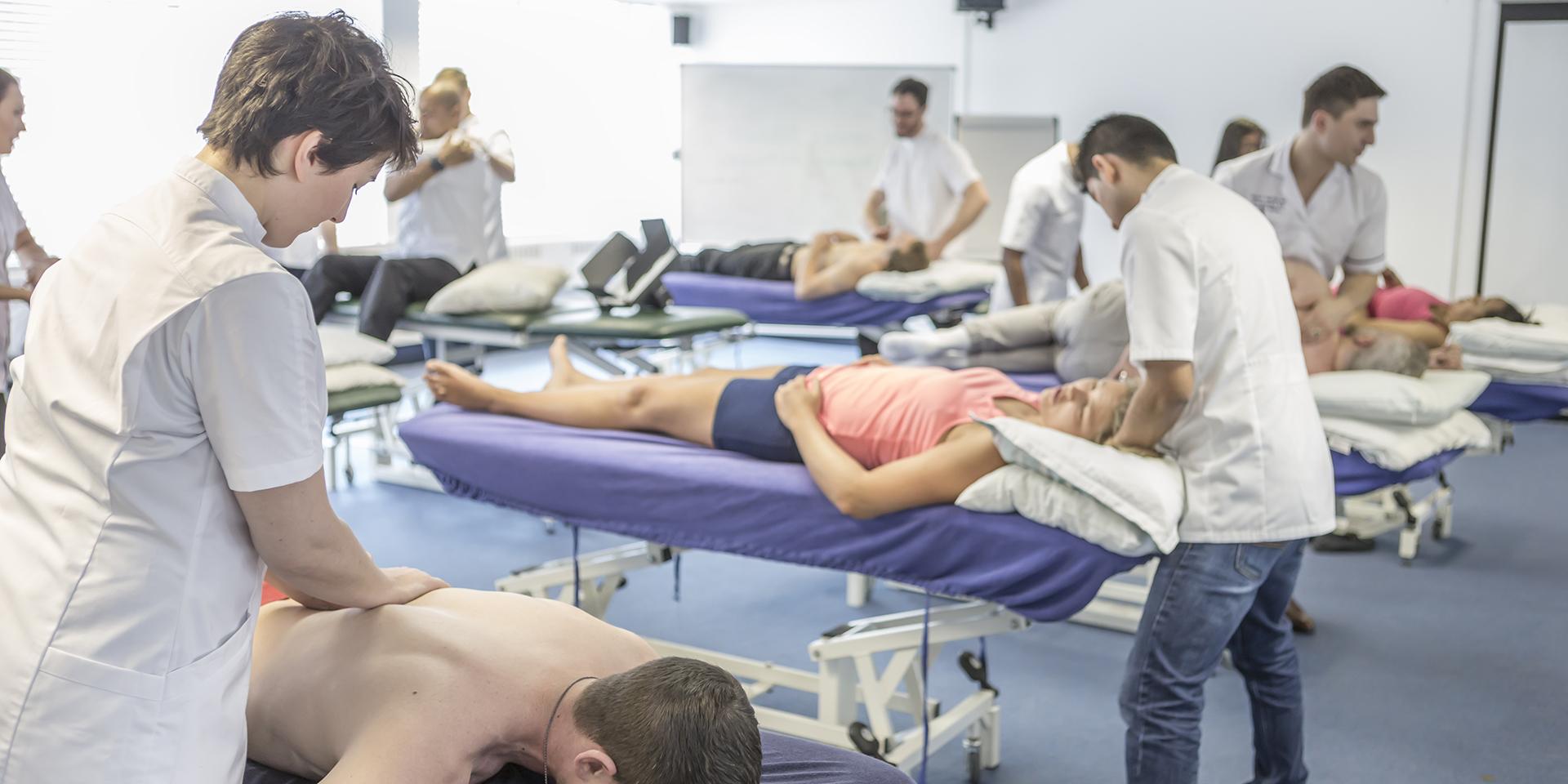The UCO has recently introduced a new method of assessing students’ clinical competence as part of a longer-term initiative to widen the scope of curriculum supporting biopsychosocial, patient-centred and values-based care, and to enhance the validity and reliability of academic and clinical assessment processes.
Previously, final year students were assessed in two, four-hour Clinical Competence Assessments (CCAs), but they are now being replaced by Mini Clinical Examinations (MCEs), which provide briefer snapshots of student performance on more frequent occasions over two years of clinical education. Workplace-based assessments in medicine typically involve assessing practice behaviour and clinical reasoning processes during consultations in authentic clinical practice settings. Previous research has indicated that MCEs are feasible, efficient and able to differentiate between students at different stages of an osteopathic teaching programme in Australia. They can provide diverse formative feedback to develop skills, but may have lower inter-rater reliability if assessment criteria and behavioural descriptors are unclear or when examiners have over-lapping teaching and assessment roles. It has also been found that few students ‘fail’ an MCE, which may be due to examiners’ reluctance to fail students with whom they have close working relationships. Research is needed to explore examiners’ experiences of potential role conflicts and opinions about the value of MCEs in evaluating complex clinical reasoning processes needed in osteopathic practice.
The aim of this study is to explore tutors’ opinions about the benefits and challenges of the CCAs and MCEs, in order to improve future clinical education and assessment. It involves qualitative semi-structured interviews with a purposive sample of UCO clinic tutors who are involved in assessing students using both methods. Data will be analysed using Thematic Framework Analysis with elements of Grounded Theory. The study is being led by Dr Oliver Thomson in collaboration with a team of educators and clinicians including Hilary Abbey, Francesca Wiggins, Simon Devitt and Mathew Cousins. It is due to end in November 2017, after which the results will be published.

